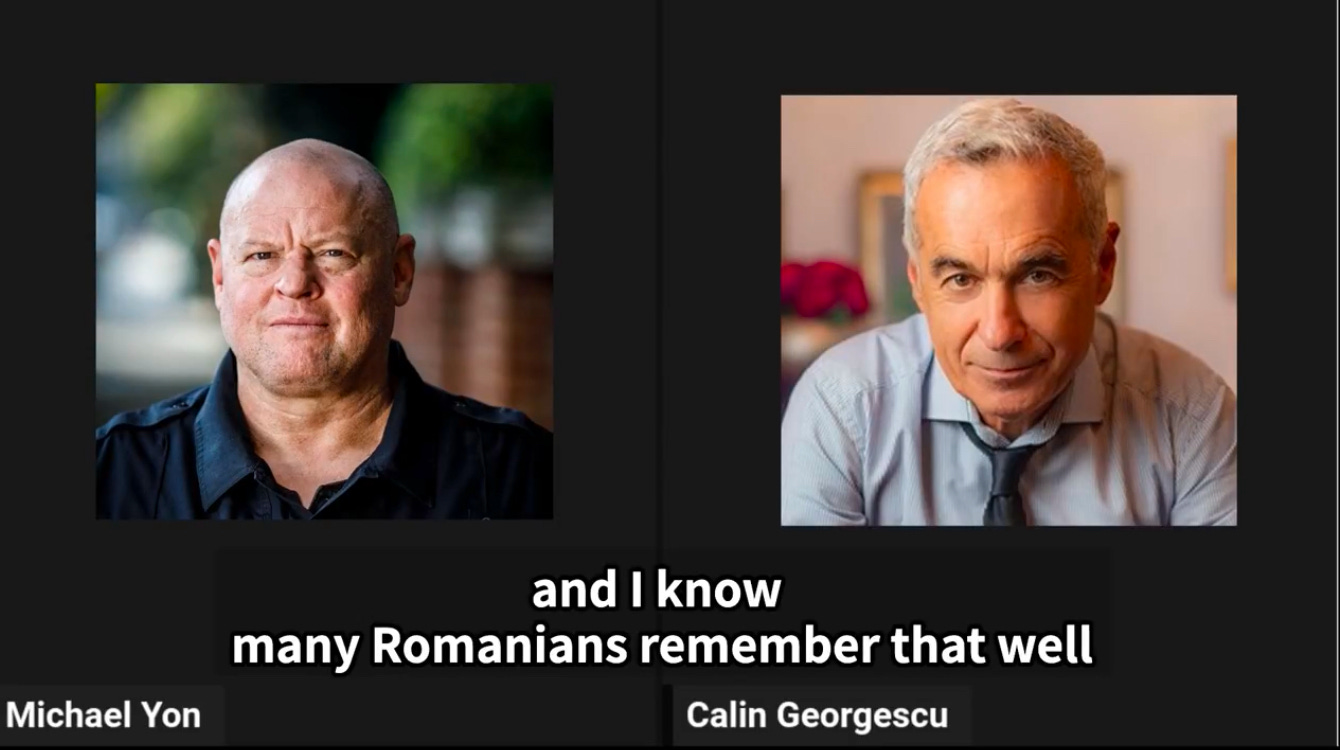Romania’s Coup d’État
Călin Georgescu tells Michael Yon why his country’s Constitutional Court annulled Romania’s presidential election
This month CĂLIN GEORGESCU won Romania’s presidential election.
He told international war correspondent MICHAEL YON that the Constitutional Court of Romania, at the behest of international banking interests and non-governmental organizations, has annulled the election’s results.
“In Romania, when nine judges get to vote and decide for 19 million people, that is no longer a democracy,” Georgescu said. “In that moment it becomes a dictatorship. And this is happening today in Romania.”
Georgescu said Romanians remember experiencing dictatorship under Nicolae Ceaușescu before he was deposed in 1989.
“And we don’t want to go back to those times. If Romanian democracy fails, the entire world democratic system is at risk.”
Georgescu underscored the seriousness of the problem.
“Because Romania is part of the European Union, part of NATO, and is one of the most important allies of the United States in Eastern Europe, if we just stay indifferent, and enjoy the horrible political show that is playing now in Romania, this will lead to an international legal precedent. It could lead to the end of democracy as we know it, worldwide. And this could happen in the United States, also. It could happen anywhere.”
Georgescu said Romanians demand “a government of the people, by the people and for the people, that will bring prosperity and peace to all of us.”
Yon asked whether George Soros-funded NGOs played a role in influencing the court’s decision.
According to Georgescu, Soros arrived in Romania immediately after the fall of Ceaușescu, and he manipulated and captured the grassroots non-governmental organizations in order to conduct them in his own style: to conform Romanian democracy “to the interests of the globalist system.”
So today Romania, after 35 years, is a “monopoly of the oligarchs” running large corporations, Georgescu said. Small Romanian entrepreneurs are “put in the corner,” and larger businesses in Romania are required to pay ever-increasing taxes.
The result, Georgescu said, is a lack of predictability for a Romanian investor to evaluate the risk. “In order words,” Georgescu said, “the market is not free. And this is a big problem in Romania today.” Georgescu pointed to Romania’s 20 percent poverty rate as evidence that Romania’s economy is failing.
Yon noted the presence of the UN Refugee agency (UNHCR) and the International Organization for Migration (IOM) in Romania, and observed that these UN agencies appear to be “flooding Romania with so-called migrants, in an invasion.”
“It’s a huge immigration which is coming in Romania,” Georgescu agreed.
“All Europe is under this attack,” he said. “It’s invasion. Our culture is in danger. And moreover, our Romanian people are working outside [Romania], which is terribly bad. It’s a system [that] actually destroyed the country and pushed the people to work in Europe, instead of in their own country.”
Georgescu said Hungary’s decision to maintain secure borders and resist migration is “very correct.”
Hungary “has a prime minister who was [elected by] his people, for this reason!” he said.
Yon asked whether Georgescu was targeted, and his election nullified, not only because he wishes Romania to “remain Romanian” — like Hungary wishes to remain Hungarian — but also because Georgescu opposes the construction of a new NATO military base in his country that might draw Romania into war with Russia.
“It’s true,” he said, “in the sense that my project for Romania, and for the region, has just one name: Peace. And they don’t want peace.” He believes Romania needs to produce its own food and energy, and to “be capable to administer ourself, to finance ourself, and to have a niche in Europe.”
“And they don’t want [us] to have that. And particularly, they don’t want to have peace. Who? International institutions, and of course the oligarchs, which still have the power in Romania.”
“Behind any war are the bankers. It’s absolutely clear.”


I love you, Kim.